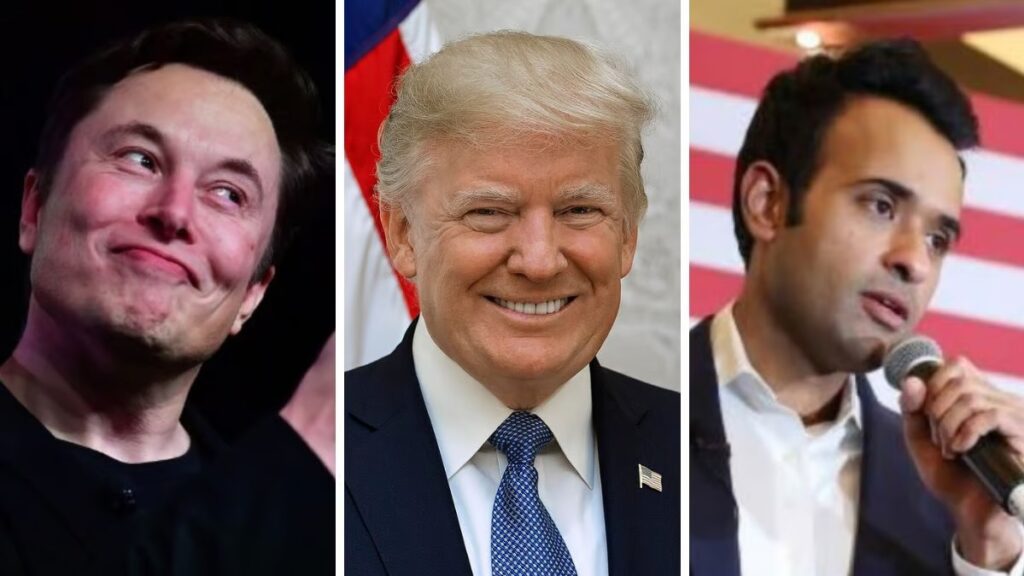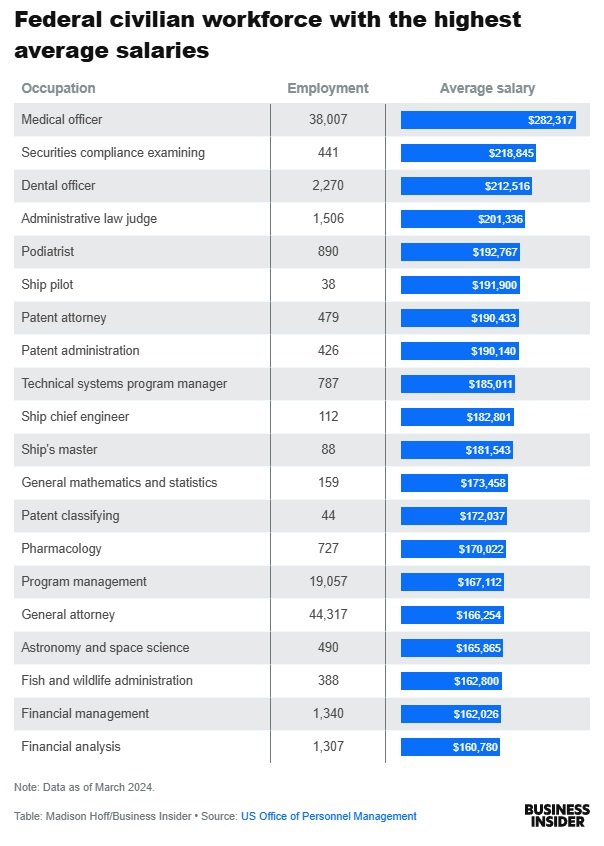Exploring the Top-Paying Federal Jobs at Risk Under Trump’s New Initiative
The Vision Behind DOGE
The Department of Government Efficiency (DOGE), established under President-elect Donald Trump, aims to reduce federal government spending by trimming the workforce. Headed by Elon Musk and Vivek Ramaswamy, DOGE seeks to streamline government operations while adhering to constitutional and statutory mandates. The leaders emphasize identifying the minimum staff needed to maintain essential functions.
This initiative, which includes proposals for mandatory in-office work and severance incentives, raises questions about the future of federal employees, particularly those in high-paying positions.

Top 20 Highest-Paying Federal Jobs
According to March data from the US Office of Personnel Management, the top 20 federal civilian occupations averaged salaries exceeding $160,000. Medical officers led the list, earning the highest average salaries, with most employed by the Department of Veterans Affairs. Other top earners include ship pilots and general attorneys.
Financial analysts also made the list, with their largest employer being the Federal Deposit Insurance Corporation, which has about 300 analysts on staff. Health-related roles dominated the highest-paying jobs, reflecting a critical sector within the federal workforce.
Agencies With the Highest Salaries
Beyond individual roles, entire agencies stand out for their average pay. The Department of Education and the Department of Energy reported average employee salaries over $140,000, the highest among cabinet-level agencies. These agencies employ many professionals eligible for telework, a practice DOGE’s proposed policies could end.

Mandatory office attendance could increase voluntary departures, particularly among professional and administrative staff, potentially aiding DOGE’s goals.
Strategies for Downsizing
Musk and Ramaswamy outlined plans to achieve a leaner federal workforce, including:
- Identifying essential roles and eliminating redundancies.
- Encouraging early retirements with attractive severance packages.
- Reducing telework options to prompt voluntary turnover.
While specifics on severance incentives remain vague, DOGE promises to balance efficiency with fairness. Karoline Leavitt, a Trump-Vance transition spokesperson, stated the administration’s mandate to fulfill campaign promises, including sweeping government reforms.
Implications for Federal Employees
While DOGE’s approach aims to cut costs and improve efficiency, it places high-paying federal jobs under scrutiny. With medical officers, attorneys, and financial analysts topping the pay scale, these roles may face significant shifts or eliminations.
As DOGE moves forward, federal workers and agency leaders must navigate an uncertain landscape shaped by budget cuts and restructuring. The ultimate impact on government functionality and employee morale remains to be seen.
Our Visitor






 Users Today : 16
Users Today : 16


